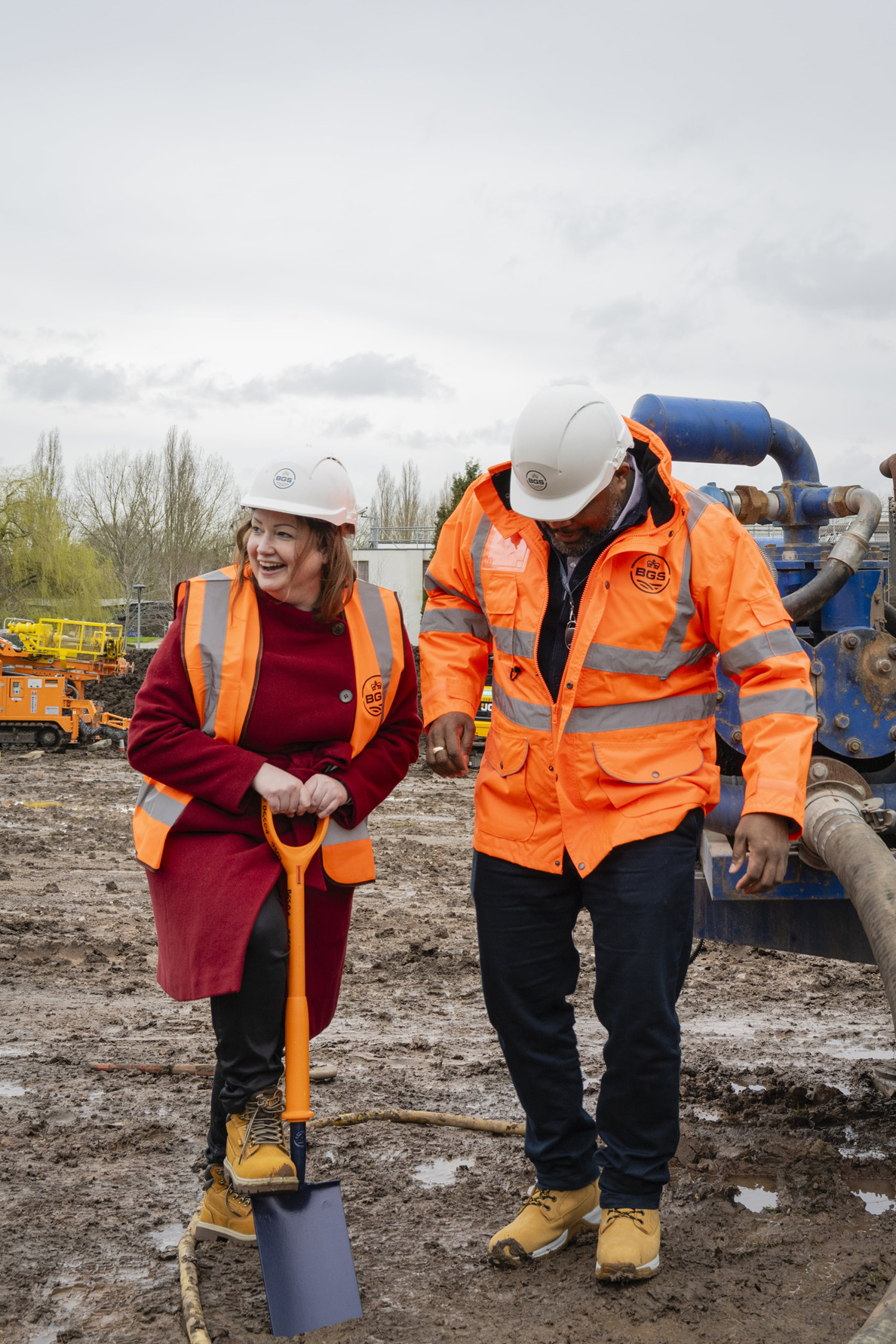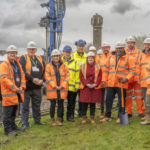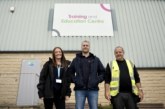A new £1.7m geothermal heat pump project is officially underway at British Geological Survey’s (BGS) headquarters in Nottinghamshire — saving the organisation 30 tonnes of carbon dioxide per year and accelerating forward its net zero ambitions by 2040.
Ruth Edwards, MP for Rushcliffe, broke ground on the scheme, which will decarbonise BGS’s operations and drastically reduce its heating bill at its Rushcliffe base. It is the largest renewable energy system of its kind in the area, consisting of an array of 28 boreholes drilled to a depth of 225m.
Forming part of BGS’s Keyworth campus decarbonisation plans, the new energy system involves the removal of gas boilers and will heat two buildings on the Keyworth site, where more than 400 members of staff work, including tenants and non-BGS staff.
The project is majority funded by the Natural Environmental Research Council (NERC), with a further contribution from the UK Government’s Public Sector Decarbonisation Scheme. It has been delivered in partnership with multi-disciplinary consultancy Pick Everard, which provided the initial designs alongside main civils contractor Cenergist, and multi-disciplinary services on site including project management, quantity surveying, building services, geo-environmental and health and safety consultancy.
Ross Goodband, Senior Environmental Engineer at Pick Everard, said: “This is a complex and fascinating project to be a part of. It has seen several members of our geo-environmental, project management and building services teams work closely with BGS and their partners. Our role was to carefully manage the initial investigation and subsequent installation of the borehole array, utilising the latest borehole drilling and downhole geophysical techniques.
“Our combined work has facilitated several research experiments, including core analysis, electrical resistivity, thermal modelling and a full suite of downhole geophysics, which will help inform our knowledge of environmentally-sound energy solutions, such as ground source heat pumps, in our public and private infrastructure. We look forward to playing an active role as the site evolves over the coming years and continue our long-standing relationship with BGS.”
Steve Wilkinson, Head of Commercial Projects at Cenergist, commented: “Cenergist are proud to be supporting the British Geological Survey in their plans to achieve net zero by 2040. Our solution for this site will provide modernised futureproof low carbon heating and hot water systems to these two buildings, significantly reducing carbon emissions.”

The heating system will also benefit from advanced monitoring, which will assess the running costs and efficiency of the heat pumps and provide a case study for other organisations, such as schools and hospitals, that are thinking of switching from fossil fuel boilers to clean heat pumps.
The project will constitute a ‘living laboratory’, with state-of-the-art sensors deployed in the heat extraction boreholes and buildings. The technology will provide data in real time to help increase the public’s understanding of ground-source heat pumps and how they can be an effective solution for heating both new and existing buildings in the UK.
Daniel Crow, Head of BGS Estates and Facilities, said: “This exciting project gives us the opportunity to blend our observation of the subsurface with leading low carbon heating. The disruption to BGS staff will be kept to a minimum, with short closures of a couple of buildings to allow for the installation of heat emitters.
“The drilling and heat pump installation is due to last around three months. The borehole installation should not impact on Keyworth site operations due to the careful planning and specification involved in the project.”
The installation of the ground-source heat pump is part of a wider project to help achieve UK Research and Innovation’s (UKRI) aim of reaching net zero by 2040.
Mike Potter, Senior Environment Manager at NERC, added: “This inspiring project to decarbonise heat at the BGS Keyworth campus will reduce our reliance on fossil fuels. This is the first geothermal heat pump system to be installed on the UKRI estate and will support our journey to net zero in 2040.
“What makes this project extra special is the ‘living lab’ feature which will support data collection and knowledge sharing that could inform the heat pump sector as a whole.”
The UK Government’s Public Sector Decarbonisation Scheme is run by the Department for Energy Security and Net Zero and delivered by Salix Finance.
Header image: Breaking ground ceremony — [ictured from left to right are Sami Massum (BGS), David Boon (BGS), Councillor Rob Inglis, Michelle Bentham (BGS) and Mark Thorpe (Pick Everard).










